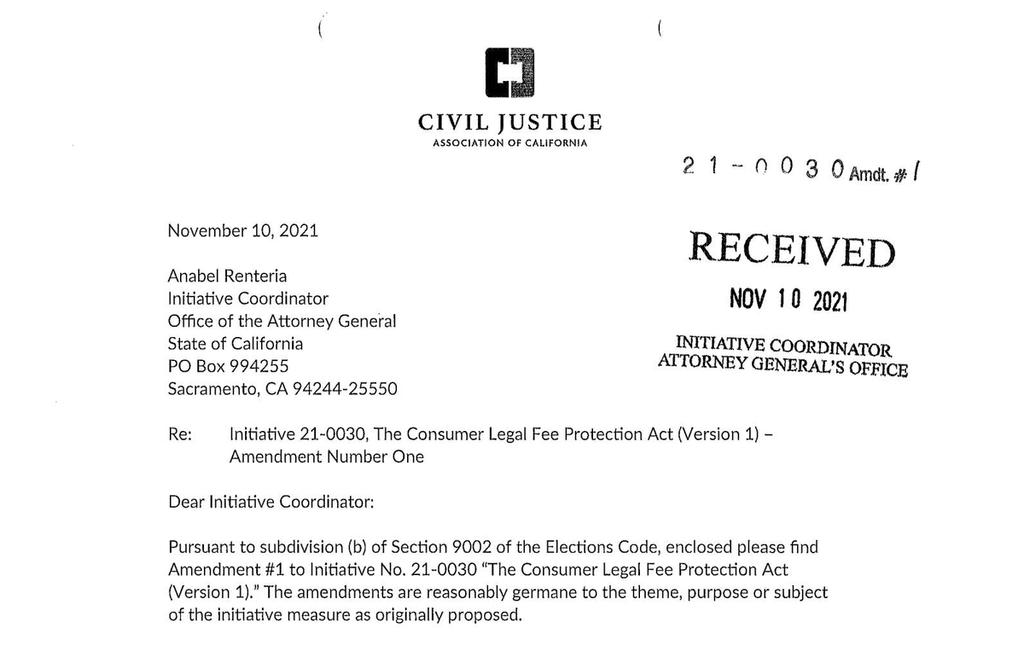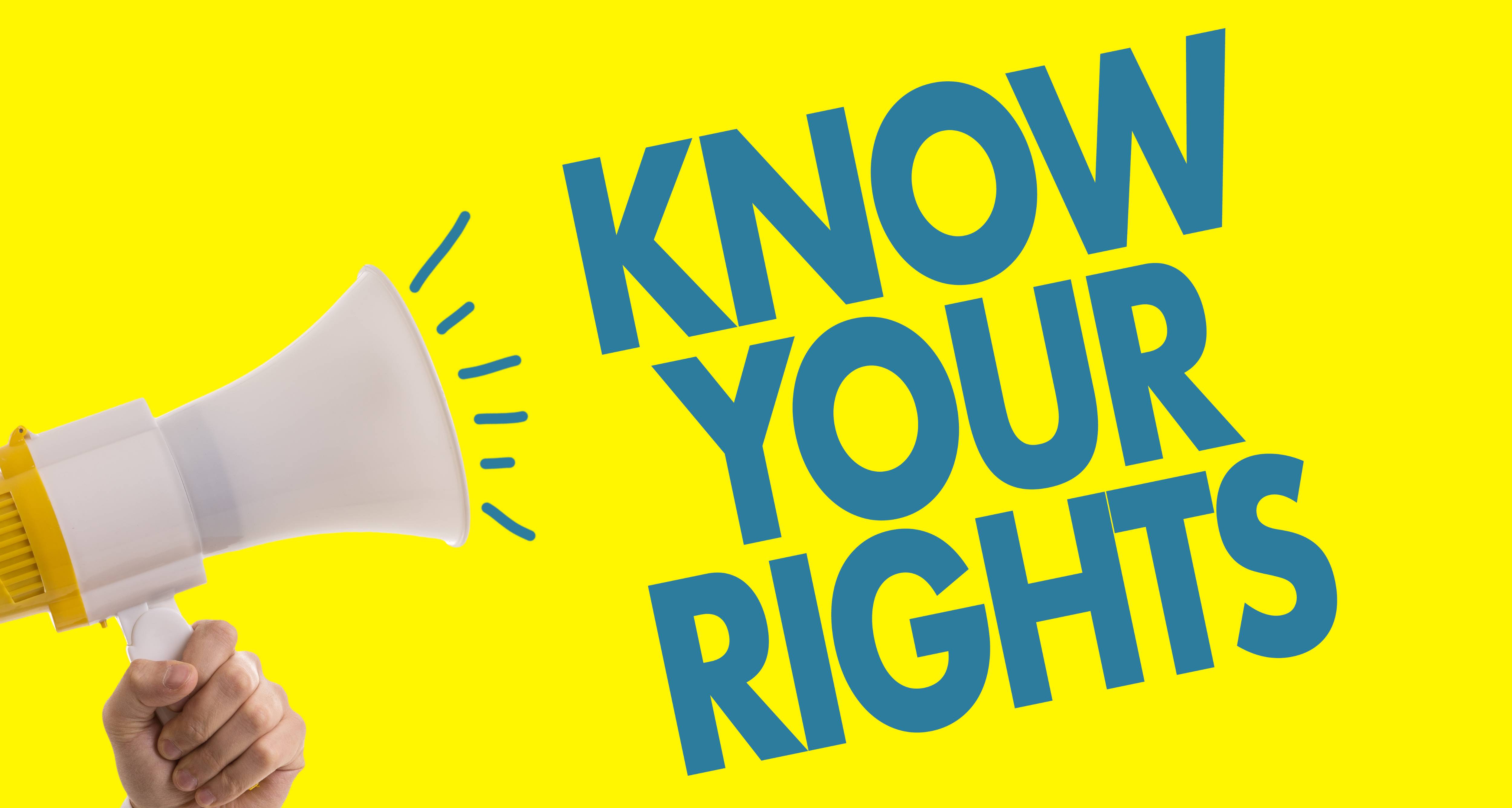
Understanding the Consumer Legal Fee Protection Act
 By Daniel Amos
By Daniel Amos The media is already talking about which political party will prevail in the 2022 elections this November. But in addition to the politicians, we will be voting on, we will also have some hotly contested and important ballot initiatives to decide on.
Several of them are this year’s version of the “Business vs. Consumers” fights we have seen before in California. In this article, Higher Legal will review the “Consumer Legal Fee Protection Act”, with others to come in future editions.

What is the “Consumer Legal Fee Protection Act”?
The Consumer Legal Fee Protection Act (Initiative 21-0030) seeks to limit how much consumer lawyers can charge their clients in personal injury cases. The Civil Justice Association of California (CJAC) has submitted the initiative to restrict lawyers fees of those who represent injured persons to no more than 20 percent of their client’s award.
Who is in favor of the Consumer Legal Fee Protection Act:
The Civil Justice Association of California is the organization that has submitted the initiative. The CJAC describes itself as an organization “dedicated solely to improving California’s civil liability system, in the legislature, the regulatory arena, and the courts. Our membership base consists of businesses and associations from a broad cross-section of California industries.”
The money behind the initiative is coming from many of the same big companies we have seen payrolling these ballot initiatives before, including ExxonMobile, Chevron, State Farm, Allstate, and Farmers Insurance companies to name a few.
But there are also some names supporting the initiative that are not as well known to the general public such as Yourcause LLC, a software company that claims to “empower and connect people to drive impact for social good”.
A list of businesses and industries backing the initiative can be found here: CAOCIDPAC.
Who is against the Consumer Legal Fee Protection Act:
On the consumer’s side, fighting against the initiative is the Consumer Attorneys of California (CAOC). The CAOC describes itself as an “organization that represents the interests of 39 million Californians. Our member attorneys stand for plaintiffs seeking accountability from those who do wrong.”
The money to fight the initiative comes in large part from the consumer attorneys (plaintiff lawyers) who represent people “injured or killed by defective products or drugs; people who suffer discrimination because of age, gender, disability or race; and individuals injured or killed because of another's negligent acts, and citizens whose civil rights have been violated.”
What’s this ballot initiative all about?
The crux of this initiative fight is, as always, money.
Specifically, money in the form of attorney’s fees and business profits. In a nutshell, the big businesses supporting the initiative don’t want the consumer lawyers who sue them to make as much money as they currently do. This law will make it harder for consumers to file lawsuits, and with fewer lawsuits by injured consumers, the companies will make larger profits.
What is the current status of the Consumer Legal Fee Protection Act?
California Attorney General Rob Bonta has just released the title and ballot summary for the initiative which will appear on petitions that will be circulated for signature gathering. If the initiative qualifies for the ballot, the title and summary will then also be proposed for the ballot.
To support its efforts, the CJAC has been building a campaign war chest, with $660,000 in total contributions so far. As of the writing of this article, we have not been able to ascertain if the consumer attorneys have started to raise money to fight the initiative. We will continue to monitor this important part of the initiative process and report on that information as it becomes available.
What are the potential consequences of the Consumer Legal Fee Protection Act?
Is this initiative fair and balanced? The initiative only limits the amount of money that consumer lawyers can make representing injured persons, but according to its summary it “Does not restrict fee arrangements for defendants’ attorneys.”
In other words, the initiative only seeks to limit attorney’s fees to the lawyers for injured people but does not restrict attorney’s fees for the lawyers who represent the manufactures and insurance companies. That seems to create an unfair advantage for the big industries and insurance companies.
Big industry is usually in favor of capitalism and free enterprise, but in this case, big businesses are arguing just the opposite and asking for a law that restricts free trade.
The language of the initiative states, “Many lawyers who represent injured consumers…take 40% or more of the money clients recover in court,...through contingency fee agreements, in which the injured consumer agrees to give the lawyer a percentage of the money recovered for their injuries. Contingency fee pricing is not competitive. Most consumers have unequal bargaining power with lawyers, and consumers entering into these agreements may be vulnerable and still suffering from their injuries.”
Higher Legal specializes in these issues and has previously written an article on this subject that explains contingency fee contracts: What is a personal injury contingency fee agreement in California?
The claim by the CJAC that “contingency fee pricing is not competitive” is not supported by the experience of Higher Legal. Everyone has seen the many consumer lawyers and law firms that advertise on TV, radio, and on the internet. Consumers have many different injury lawyers to choose from in California and competition is high. The personal injury business is one of the most competitive businesses in California.
Additionally, there are California State Bar Certified Lawyer Referral Services, like Higher Legal [LRS#130], which are designed and licensed to serve the community, protect legal consumers, and improve the quality and affordability of legal services to the public. Certified referral services educate consumers on how to negotiate and get the best deal on a contingency fee contract.
Additionally, a contingency fee contract usually says that if a consumer lawyer does not win the case, the injured person doesn't pay any legal fees to their lawyer. The business and insurance company lawyers get paid whether they win or lose. That isn't fair and balanced. It should be the same for both sides, so if the lawyers defending the big businesses and insurance companies don’t win, they don’t get paid.
There seem to be a lot of problems with this initiative, and we will continue to monitor it and report back to you.
What’s next?
Higher Legal is your source for in-depth legal information. We have reached out to both the CJCA and CAOC to have them provide more information so we can keep you informed.
Higher Legal will have updates on this story and new stories about additional ballot initiatives in the weeks ahead. Please subscribe to this blog and to the Higher Legal YouTube channel to stay up to date.
Thanks for reading!